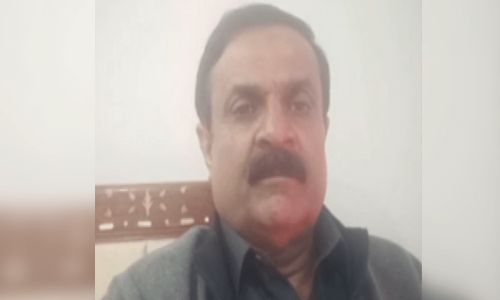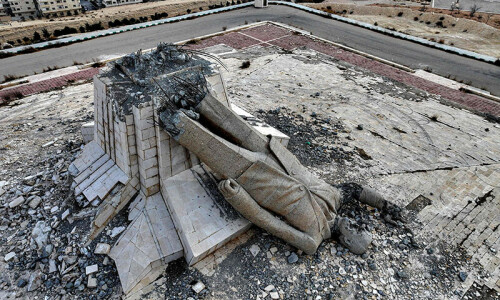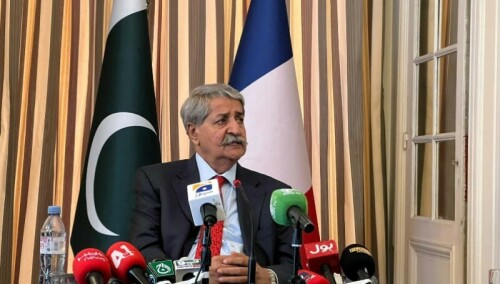THE HAGUE, Nov 18: The UN's highest court will hear a genocide claim lodged against Serbia by neighbouring Croatia for ethnic cleansing committed during the Croatian war of the early 1990s, judges ruled on Tuesday.
A panel of 17 judges dismissed a Serbian challenge to the International Court of Justice's competence to hear Croatia's complaint, a date for which will now be set and may take years.
“The court ... by 10 votes to seven finds that ... the court has the jurisdiction to entertain the application by the Republic of Croatia,” said presiding judge Rosalyn Higgins in The Hague.
The ruling paves the way for only the second genocide case to be brought before the ICJ, Serbia also having been the subject of the previous claim filed by Bosnia.
Croatia lodged a genocide complaint against Serbia at the ICJ in 1999, claiming “a form of genocide which resulted in large numbers of Croatian citizens being displaced, killed, tortured, or illegally detained as well as extensive property destruction”.
But Serbia argued before the court in May that it had no jurisdiction to hear the case over alleged crimes committed during the 1991-95 Croatian war that claimed some 20,000 lives.
Serbia contended the Federal Republic of Yugoslavia, the name by which the federated state was formerly known, had not been a member of the UN nor a party to its convention on the prevention of genocide on the date Croatia's complaint was filed.
And it said the majority of the crimes outlined in the complaint were committed before the formation of the current republic.
Croatia's core complaint could not be heard before a decision had been made on Belgrade's objection to the court's jurisdiction.
Last year, the ICJ cleared Belgrade of genocide in Bosnia during the break-up of the former Yugoslav federation.
It judged the 1995 massacre of thousands of men and boys at Srebrenica in Bosnia to have been an act of genocide, without attributing direct responsibility to Serbia.
In its application, Croatia claimed that Serbia continued to violate the genocide convention by “failing to punish those responsible, by not revealing information on missing persons, and by not returning cultural property taken from Croatia during its occupation.” On top of punishment for those responsible, Croatia seeks reparations and an order for the recovery of cultural treasures it claims were pillaged during the war.
The charges against Belgrade would have been strengthened in both cases by a judgment against former Serbian President Slobodan Milosevic, but he died in March 2006 shortly before the conclusion of his war crimes trial.
Ivan Simonovic, the lead Croatian lawyer on the case, said he was “very satisfied” with the judgment, which he expected to add to pressure on Serbia to speed up its processes of bringing war criminals to book, finding missing persons, and returning cultural treasures.
“We are not launching these proceedings to live in the past but to build healthy foundations for the sustainable future of the region,” he said.
A hearing of the case should also bring to light information lost with Milosevic's death, said Simonovic.
He expected the case to be heard in three years' time.—AFP















































Dear visitor, the comments section is undergoing an overhaul and will return soon.